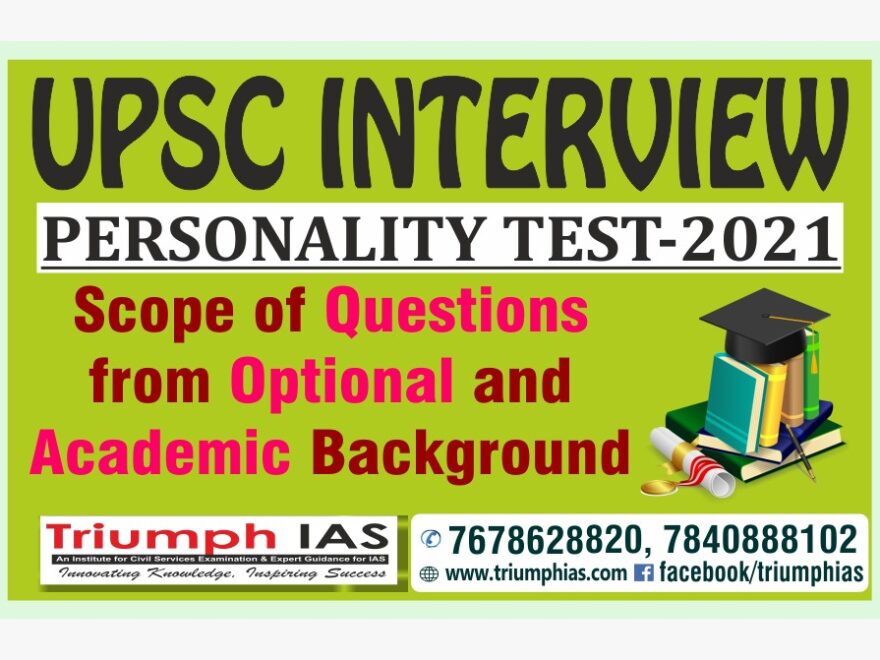 PERSONALITY TEST PREVIEW – CSE 2021
PERSONALITY TEST PREVIEW – CSE 2021
 One-On-One Mentorship , By Vikash Ranjan
One-On-One Mentorship , By Vikash Ranjan
Scope of Questions from Optional and Academic Background
interview, one should try to revise all the topics of his optional thoroughly. As you opteda particular subject as an optional, board is of the view that you must have deep insights in it.
- This means if you fail to answer the questions related to optional, this may fetch you bad marks. While, in case of academic background, the board is well versed with the fact that candidate may not be able to recall things from graduation level.They ask you the questions, to check your facial expressions, your reaction when you get an unexpected question and your adherence to honesty.
- Therefore, the best way to handle these questions is to ‘be original’. Interview demands the manifestation of the personality ‘which you have’ – not the one which coaching institutes have developed in you, with the course of time. Additionally, bluffing on facts or misguiding the board must be avoided. It is always better to accept the truth than to bluff. However, if you can faintly recall the things and you know that this might be a correct answer, a prior permission for making guess should be taken from the board. If the board permits, you should keep your guess in front of them, with adequate logics which have helped you to arrive on the answer.
- That said “Honesty is the best policy”. The quote works in every aspect of life. Brining honesty in thought and action is the key to success.
PROBLEM SOLVING SKILLS
- Problem-solving skills are relevant for evolving solutions to a problem or set of problems. A problem is a gap between desired state of affair and actual state of affair at a particular point of time. In order to overcome this gap, relevant action is required. For identifying this action, problem-solving skills are required. Problem-solving skills are relevant not only for case-based group discussion as widely perceived but are relevant to topic-based group discussion too. Your problem-solving skills will be reflected in your following actions during group discussion process
- While discussing a topic or case, adopt systems approach, that is, treat the topic/case as a system and identify its different components (technically called subsystems) and their interrelationships. For example, if you are talking about status of education in India, classify education into three categories: primary education, secondary education, and higher education; these three categories of education have high relationships – a higher-level education is highly dependent on a lower-level education. In order to identify issues involved in topic/case, apply your creative power. Through this power, you can identify root causes underlying issues. For example, while discussing the reasons for poor status of education in India, do not just mention lack of funds, lack of discipline in the society, etc. These may not be root causes but intervening causes resulted from root causes, for example, lack of commitment on the part of concerned governments or similar such causes. While suggesting a solution to any problem, check its feasibility and its effect on other components of the system, otherwise, there is likelihood that your solution may solve one problem but may generate more problems. If possible, also mention how your solution can be implemented. For example, if you mention that governments should allocate more funds to education, also mention from where these funds should come as governments always feel lack of funds.


Admin : Triumph IAS

